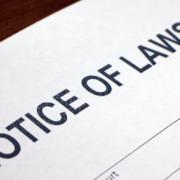If you and your spouse are on the “same page” (or close to it) on getting a divorce and the major issues it involves, you may be able to move the process into the fast lane (though there is a waiting period here in Bucks County). If you are seeking a no-fault (or mutual consent or uncontested) divorce, after the complaint is filed, you have a 90-day waiting period before it is finalized.
Pennsylvania has this “cooling off period” after the complaint and notice of process are filed and served on the other party. After the time expires, each party files an Affidavit of Consent stating the marriage is irretrievably broken and that each wants a divorce and asks the court to grant it without a hearing. Also included is a legally binding divorce agreement stating how your issues are resolved.
If You and Your Spouse Work Together, Your Marriage Could End Quickly
You and your spouse must agree on all critical issues for a no-fault divorce, including spousal support, child support, child custody, division of property, and debts. These divorces are easier to achieve when the couple:
- No longer wants to be married, and they want to end the marriage amicably or at least without extended conflict
- Has a valid, enforceable prenuptial or postnuptial agreement that spells out how financial issues will be resolved
- Do not have children, so custody and support aren’t issues
- Have few assets and or low incomes, which minimize spousal support and asset division disputes
The spouses must communicate openly before the complaint is filed and agree they want a no-fault divorce. Ideally, disagreements about significant issues should be close to being resolved if not brought to an end.
You and your spouse need not be on good terms or feel good about each other. But your desire to wrap up your marriage in a short period of time must be greater than a need for conflict or to drag out the inevitable end of your relationship.
Three months should be enough time to work out your disagreements. It is also long enough to allow the parties to think about what they want and be comfortable with their decisions without feeling rushed. A 90-day deadline can also instill some urgency in parties who may let these issues fester for much more time.
Plan B If One Spouse Will Not Consent
If you want to move forward with a no-fault divorce, but your spouse will not consent, you can obtain a divorce decree after you provide evidence that your marriage is irretrievably broken and that the two of you have lived separately and apart for one year.
Under Pennsylvania law, you can live separately and apart even though you live in the same house. If you establish this separation lasted at least a year, your spouse could dispute that the marriage is irretrievably broken, but the one-year separation is usually enough proof that’s the case.
If There Is No Need to Delay a Divorce, Why Do So?
Our attorneys can get to work negotiating your settlement agreement and are ready to advocate for your interests, regardless of what kind of divorce is right for you. We know how difficult this time can be for you, and we will work to create the best possible outcome with the least wasted time.
Learn more by contacting our office. Call (215) 752-6200, book a consultation, or send us an email. We can meet you in our office or speak with you by phone.












